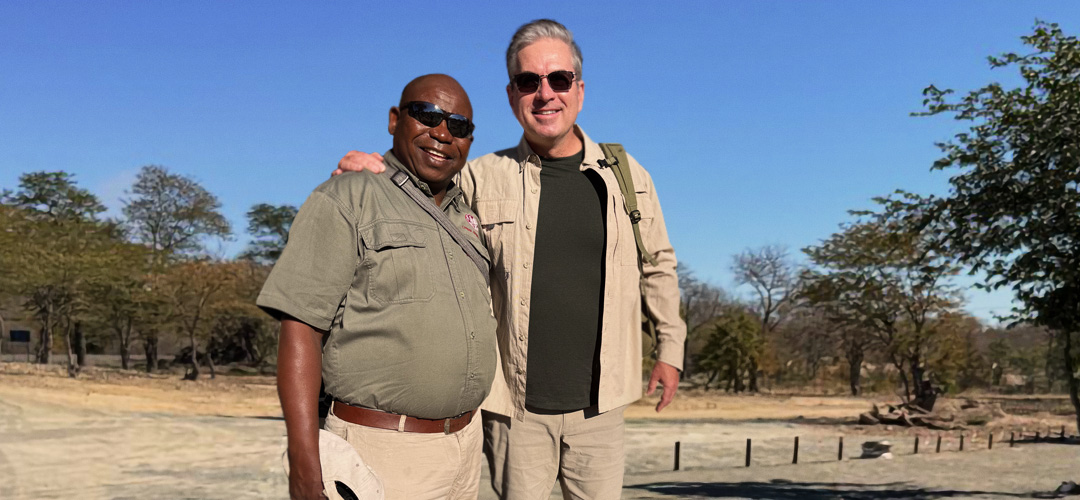Earlier this year, I embarked on a life-changing 15-day African safari with my adventure-loving extended family. We chose the Ultimate African Safari tour from Overseas Adventure Travel (OAT) because it promised more than just wildlife game sightings and postcard views—it offered a chance to truly connect with the people, cultures, and landscapes of Africa. Led by a local guide, our journey was designed to push us beyond the usual tourist routes and into immersive experiences that challenged our perspectives, expanded our understanding, and reminded us why stepping out of our comfort zones into new cultures is one of the best ways to grow.
Our small group of 14 travelers—six of us from my family and eight adventurous strangers who quickly became friends—set off on a journey that would take us deep into the heart of southern Africa. We began in South Africa and ventured into remote reserves across Zimbabwe, Zambia, and Botswana. Each stop brought new adventures: tented lodges nestled in the wild, dirt airstrips welcoming tiny 12-seater planes, and border crossings that felt more like adventures than checkpoints. Whether bumping through the bush in a safari jeep or braving a makeshift bathroom behind a tree, the experience was both exhilarating and humbling.
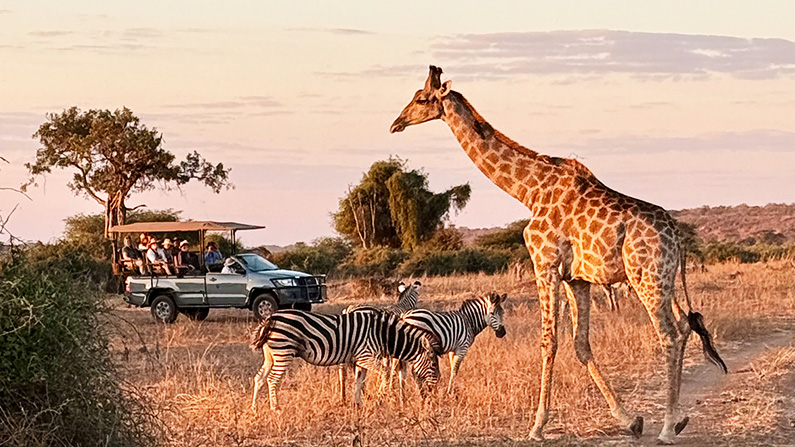
But what truly elevated this trip was our guide, Abbie, a seasoned professional and, more importantly, a remarkable human being. From the moment he introduced himself via a pre-trip WhatsApp group and welcome call, it was clear we were in good hands. Over the next 15 days, I watched Abbie lead with grace, humility, and skill. Every evening, as I reflected on the day’s events in my journal, I found myself jotting down not just what we saw but how Abbie showed up and made us feel. His actions were a daily masterclass in leadership—one that holds powerful lessons for anyone hoping to lead more effectively in today’s complex workplace.
Consider adopting some of these lessons from Abbie to your work environment. They are a surefire way to take your leadership skills to the next level.
1. Take the time to plan—and clearly communicate the plan.
Every evening, Abbie wrote the next day’s itinerary on a large sheet of paper and made it available to the group. He planned each detail with care—timing, sequencing, logistics—and tailored it to the group’s needs, the weather forecast, and any shifting variables. He never overwhelmed us with too much information. He shared just what we needed to know, repeated the important parts, and always checked for understanding. How much time do you spend responding to emails or completing tasks each day instead of helping your team plan for what they need to succeed? Consider taking just 15 minutes each day to plan, organize, and communicate your expectations.
2. Authenticity is the secret sauce.
You could feel it from day one—Abbie was fully himself. Passionate about his work. Deeply present with our group. Open about his life, his family, and his culture. That authenticity made it easy for the rest of us to open up too. He didn’t shy away from topics that can feel taboo, like race, nationality, or politics. Instead, he addressed them with honesty, curiosity, and respect. His confidence came from knowing himself and his purpose, not from posturing. Do you shy away from high-stakes conversations at work? Consider letting down your guard and showing up with curiosity and bravery.
3. Technical skills are expected—people skills make the difference.
Abbie had the expertise to navigate animals, birds, borders, and backroads. But we all assumed that level of competence. What truly set him apart was how he interacted with people. He didn’t rely on his knowledge to earn our trust—he relied on his humanity. Every interaction was thoughtful, respectful, and connective. That’s what made the experience exceptional. Are you hiding behind your computer and emails more often than you should? Consider upping your interpersonal effectiveness game and watch how engaged and empowered others become.
4. Build strong peer relationships—they’re your intelligence network.
Out in the reserves, guides stop their jeeps and take time to share tips with one another about recent wildlife sightings, even when they are on a time schedule. That cooperation is key. Without it, we likely wouldn’t have found elusive animals like leopards or cheetahs. Relationships aren’t just nice to have—they’re strategic assets. But they only work when they’re mutual, authentic, and well-maintained. How are your relationships with your peers? Consider extending favors and being helpful to their objectives. You are likely to get the same in return.
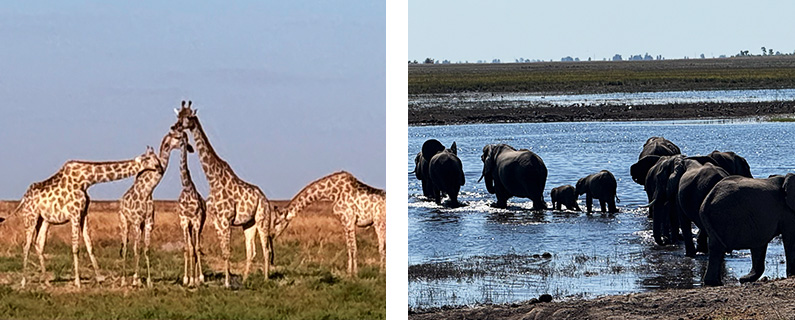
5. Get to know every person on your team.
Most months Abbie spends 15 days with a brand-new group of strangers, spanning generations, backgrounds, and comfort levels. Our group ranged from 30 to nearly 80 years old—from seasoned birders to nervous first-time travelers. I watched him observe closely, ask meaningful questions, learn our stories, and ensure everyone felt seen. He didn’t gravitate toward the easiest personalities—he engaged with us all, equally and genuinely. Do you have a clear understanding of how each of your direct reports works, thinks, and approaches situations? Consider making a list and referring to it—or doing a DiSC Workplace assessment with your team.
6. Pace your team—they’re discovering what you already know.
When we saw our first impala or giraffe, we were transfixed. We asked to stop, take dozens of photos, soak in the moment. Abbie honored those early experiences, even though he knew we’d see many more (and often under better conditions). He met us where we were, joined in our awe, and never rushed the learning curve. Great leaders remember that just because it’s routine to you doesn’t mean it is to others. Are you generous with support and patience for newly hired staff and colleagues who are trying something for the first time? Consider slowing down and letting them have their moment. Use your coaching skills to help them process the event in their own way.
7. Reframe challenges without sugarcoating.
Travel in Africa isn’t always easy—long, bumpy roads, early mornings, unexpected changes. Abbie never minimized these inconveniences. He reframed them. Rough roads? “It’s time for your African massage,” he’d say with a smile. When a flight diversion required a pre-dawn, 2.5-hour reroute, he simply said, “This is what we need to do.” No drama. No over-apologizing. And after nearly two weeks of following his steady lead, we all quietly rallied, bundled up, and got in the jeep. Do you occasionally let your emotions get the best of you, impacting the way you communicate to others? Consider taking a beat and centering yourself, and then communicate clearly and positively. You will be shocked at how quickly the situation de-escalates.
8. Small moments create lasting impact.
My cumulative takeaway from observing Abbie is that leadership isn’t always loud. It’s often made up of small, consistent acts—thoughtful planning, active listening, quiet confidence, cultural curiosity. Abbie’s influence didn’t come from authority. It came from intention. Do you want to make a difference in others’ lives at work? Consider reprioritizing how you work, placing people over tasks.
While Abbie may lead from the bush rather than a boardroom, the leadership lessons he embodies are universal. His approach—rooted in clear communication, cultural awareness, emotional intelligence, and steady calm—offers valuable insight for anyone striving to lead more effectively. Whether you’re managing a team on a video call or navigating hallway conversations in the office, pick one or two principles from this safari guide’s playbook, make them your own, and watch how even small shifts can elevate your leadership impact.
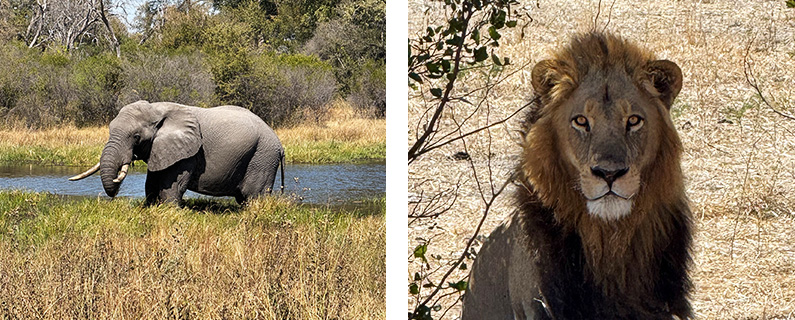
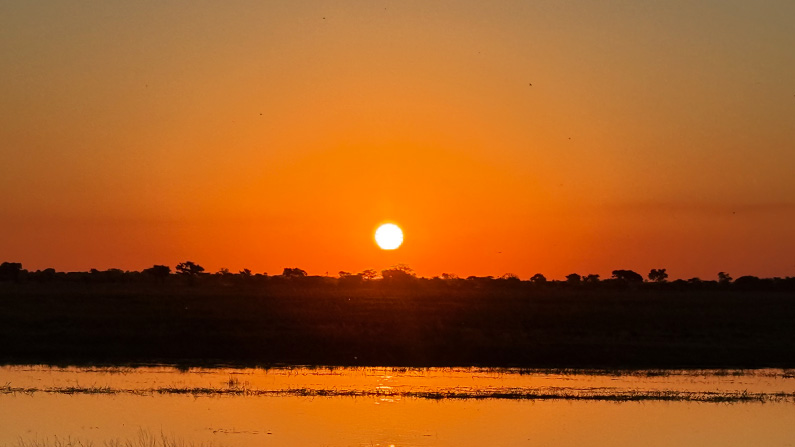
Read Next
Leadership Coaching Works!
In today’s workplace, leadership is being tested on multiple fronts at once. Leaders are...
Happiness at Work
I am not a big New Year’s resolution person. I believe in the notion of using each day...
